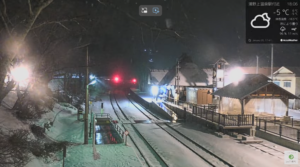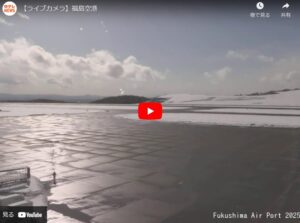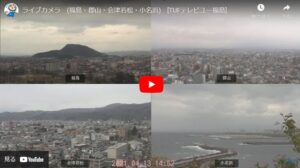Tohoku Shinkansen: Exploring Northern Japan in Comfort and Style
The Tohoku Shinkansen (東北新幹線, Tōhoku Shinkansen) is a high-speed bullet train line connecting Tokyo with the Tohoku region of northern Honshu, Japan’s main island. Traveling on the Tohoku Shinkansen is a comfortable, efficient, and scenic way to explore the diverse landscapes, historical sites, and cultural attractions of this often overlooked part of Japan.
Key Advantages of Traveling on the Tohoku Shinkansen:
- Speed and Efficiency: Allows you to travel quickly and comfortably between Tokyo and destinations throughout the Tohoku region.
- Comfortable Seating: Spacious and comfortable seating with ample legroom.
- Onboard Amenities: Many trains offer amenities such as power outlets, Wi-Fi, and restrooms.
- Scenic Views: Enjoy beautiful views of the Japanese countryside, including mountains, rice paddies, and coastlines.
- Frequent Service: Frequent departures throughout the day, making it easy to plan your travel.
Key Destinations Along the Tohoku Shinkansen Line (From South to North):
- Utsunomiya (Tochigi Prefecture): Known for its gyoza (dumplings).
- Koriyama (Fukushima Prefecture): A transportation hub and gateway to Lake Inawashiro and other attractions in Fukushima.
- Fukushima (Fukushima Prefecture): Famous for its peaches and sake.
- Sendai (Miyagi Prefecture): The largest city in the Tohoku region, known for its Date Masamune history, Tanabata Festival, and delicious seafood.
- Ichinoseki (Iwate Prefecture): Gateway to Geibikei Gorge and Takkoku-no-Iwaya Temple.
- Morioka (Iwate Prefecture): Known for its wanko soba (small bowls of soba noodles), Morioka Sansa Odori festival, and the Iwate Bank Red Brick Building.
- Kitakami (Iwate Prefecture): Famous for its Tenshochi Park, a stunning cherry blossom viewing spot.
- Hanamaki (Iwate Prefecture): Known for its hot springs and as the birthplace of poet Kenji Miyazawa.
- Shin-Hanamaki (Iwate Prefecture): Connects to the Kamaishi Line, leading to the scenic coastal area.
- Kazuno-Hanawa (Akita Prefecture): Offers access to the Odate region and its Akita dog museum.
- Furukawa (Miyagi Prefecture): Offers access to the Naruko Gorge, a spectacular autumn foliage viewing spot.
- Kurikoma-Kogen (Miyagi Prefecture): Known for its beautiful natural scenery.
- Shinjo (Yamagata Prefecture): Connecting station to the Yamagata Shinkansen.
- Tazawa-ko (Akita Prefecture): Gateway to Lake Tazawa, Japan’s deepest lake, and the surrounding natural beauty.
- Kakunodate (Akita Prefecture): A historic samurai district with well-preserved buildings.
- Akita (Akita Prefecture): The capital of Akita Prefecture, known for its Akita dogs, Kanto Festival, and local cuisine.
- Odate (Akita Prefecture): Home to the Akita Dog Museum and Akita Hinai-dori chicken.
- Shichinohe-Towada (Aomori Prefecture): Gateway to Lake Towada and the Oirase Stream.
- Hachinohe (Aomori Prefecture): A port city known for its morning market and seafood.
- Shin-Aomori (Aomori Prefecture): A transportation hub connecting to the Hokkaido Shinkansen and other local lines.
- Aomori (Aomori Prefecture): The capital of Aomori Prefecture, known for its Nebuta Festival, apple orchards, and the Sannai-Maruyama Site.
Tips for Traveling on the Tohoku Shinkansen:
- Purchase a Japan Rail Pass: If you plan to travel extensively throughout Japan, a Japan Rail Pass can be a cost-effective option.
- Reserve Your Seats: While not always required, it’s recommended to reserve your seats in advance, especially during peak season.
- Purchase Tickets in Advance: Buying tickets online or at a JR ticket office can save you time and hassle.
- Arrive Early: Arrive at the station at least 15-20 minutes before your train’s departure time.
- Check Platform Numbers: Confirm the platform number for your train on the departure boards.
- Enjoy the Ekiben: Purchase an ekiben (boxed meal) at the station to enjoy onboard.
- Relax and Enjoy the View: Sit back, relax, and enjoy the scenic views of the Japanese countryside.
Types of Tohoku Shinkansen Trains:
- Hayabusa: The fastest service, connecting Tokyo to Shin-Aomori.
- Komachi: Travels to Akita, often coupled with the Hayabusa between Tokyo and Morioka.
- Yamabiko: Slower service that stops at more stations along the line.
- Nasuno: Primarily serves the Tokyo to Koriyama section.
Planning Your Itinerary:
- Focus on Your Interests: Determine what you want to see and do in the Tohoku region and plan your itinerary accordingly.
- Consider the Season: The best time to visit Tohoku depends on your interests. Spring for cherry blossoms, summer for festivals, autumn for foliage, and winter for snow.
- Allow Plenty of Time: The Tohoku region is vast, so allow plenty of time to explore.
- Utilize Local Transportation: Once you arrive at your destination, utilize local transportation options such as trains, buses, and rental cars.
In Summary:
The Tohoku Shinkansen offers a comfortable, efficient, and scenic way to explore the beautiful and diverse Tohoku region of Japan. Whether you’re interested in history, culture, nature, or food, the Tohoku Shinkansen provides a convenient gateway to your adventure.


